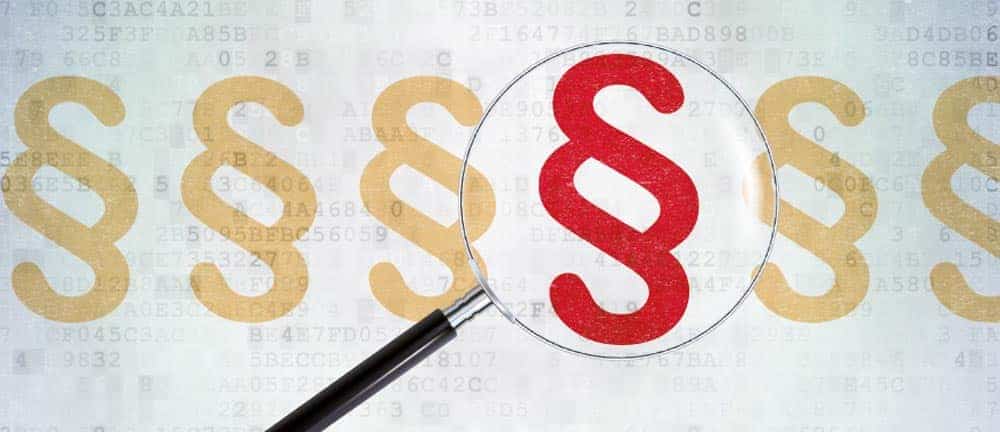DIN standard for used software trading


With the German Institute for Standardization (DIN e.V.), a consortium is developing a standardized process, a so-called DIN-SPEC, based on blockchain technology.
Lawyer Sören Reimers, managing director of ProLicense and expert for license cost optimization as well as legally secure trade with used software, is a member of this consortium and contributes his many years of experience.
"The new DIN-SPEC will revolutionize used software trading. Then it will be possible for all market participants to easily and safely trade software that is no longer needed."
says Reimers.
The initiative was started by Frank Bartels and Daud Zulfacar, both managing directors of License.rocks.
The consortium, which in addition to the aforementioned individuals also includes Prof. Thomas Mohr, Hochschule für angewandtes Management, Christian Russ, ZHAW School of Management and Law, Sobhi Mahmoud, DIN e. V., Topper Bowers and Kevin Tharayil, both of Quorum Control, is headed by Frank Bartels.
Quorum Control has developed the Tupelo software. This is a fundamentally new blockchain platform that stores information in a tamper-proof manner in a so-called chain tree in a faster and easier process than before.
"Our team will be supplemented in the future by software asset managers from end customers. Software companies should also be able to participate, in order to reflect their expectations of legally compliant trading in the DIN-SPEC as well".
Bartels explains.
"The kick-off has been made and the publication of the DIN-SPEC will take place later this year."
adds Zulfacar.
Already since 2013 the trade with used software is allowed after a ruling of the European Court of Justice from 2012 and the subsequent transfer into German law (ECJ, 03.07.2017.Az. C-128/11 and BGH, 17.07.2013. Az. I ZR 129/08).
The legislator has defined a series of requirements that must be complied with when software licenses are transferred from the seller to the buyer. The central elements of these requirements are the seller's declaration of transfer and proof of the acquisition history, which must be enclosed as evidence of the proper transfer to the buyer.
The aim of the legislator was, on the one hand, to facilitate the trade with used software by a legally secured procedure and, on the other hand, to protect the claim of the manufacturer to his copyright and to prevent an illegal duplication of the licenses on the secondary market.
In the meantime, a lively secondary market for trading in used software and companies specializing in this area have developed. The problem for the buyer is that the interpretation, the implementation of the judicial requirements and the approach to the trade by the individual used software dealers are different.
"The buyer therefore partly lacks transparency within the process and an independent review of the license rights chain is thus made more difficult"
Reimers says.
The DIN-SPEC is also intended to initiate a change of direction in the fundamental problems of trading and managing software due to the lack of standardization of contractual license parameters, or at least to lead to a rethink. Many software audits lead to high additional payments from customers precisely because the complexity of software contracts becomes difficult for license managers to understand.
Every software manufacturer uses its own metrics, restrictions, minimum regulations, terminology and license interpretations. These are sometimes better or worse regulated, sometimes transparent or non-transparent and sometimes unclear, so that the manufacturer designs its own interpretation rules.
"If manufacturers were to offer core software license agreements from the outset based on a standard that digitally provides the relevant license parameters such as metrics, minimums, scope, M&A regulation, etc., and these parameters are mapped as tokens based on blockchain technology, numerous benefits will emerge for manufacturers and customers."
says Sören Reimers.
"Blockchain technology could then be used to record not only relevant transaction timings, but also all other relevant license agreement parameters, such as license metrics, in a tamper-proof manner"
explains Bartels, who has already developed a trading platform for used software with his co-founder Daud Zulfacar under the advice of Sören Reimers, which also uses blockchain technology.
The more software manufacturers would already provide the relevant information digitally during the original sale, the easier it would be for companies to achieve the goal of overarching license compliance. This should not only be a goal of the customers, but also of the manufacturers, even if a lot of money can still be earned through audits, of course.
From now on, the new DIN-SPEC will be developed in the sense of more transparency in various workshops and adopted in November. The DIN-SPEC will then be released and published in December.
For existing SAP customers, this means that trading in software that is no longer in use is also made easier here and a process is created for companies that provides a clear guideline that customers or resellers can follow.
"For example, SAP customers migrating to SAP S/4 Hana can then sell Oracle database licenses they no longer need on the secondary market if they were purchased directly from Oracle at an earlier date"
says attorney Reimers in addition.
This makes the changeover more favorable overall for the companies due to the proceeds. Of course, the top class is the proportional reduction of the ongoing Oracle support costs for the Oracle licenses that are no longer needed or sold. This may sound trivial, but it is usually not.
Should customers and manufacturers be interested in the development (and cooperation) of this DIN-SPEC, attorney Sören Reimers (ProLicense) as well as Frank Bartels and Daud Zulfacar (License.rocks) are available for further information.






